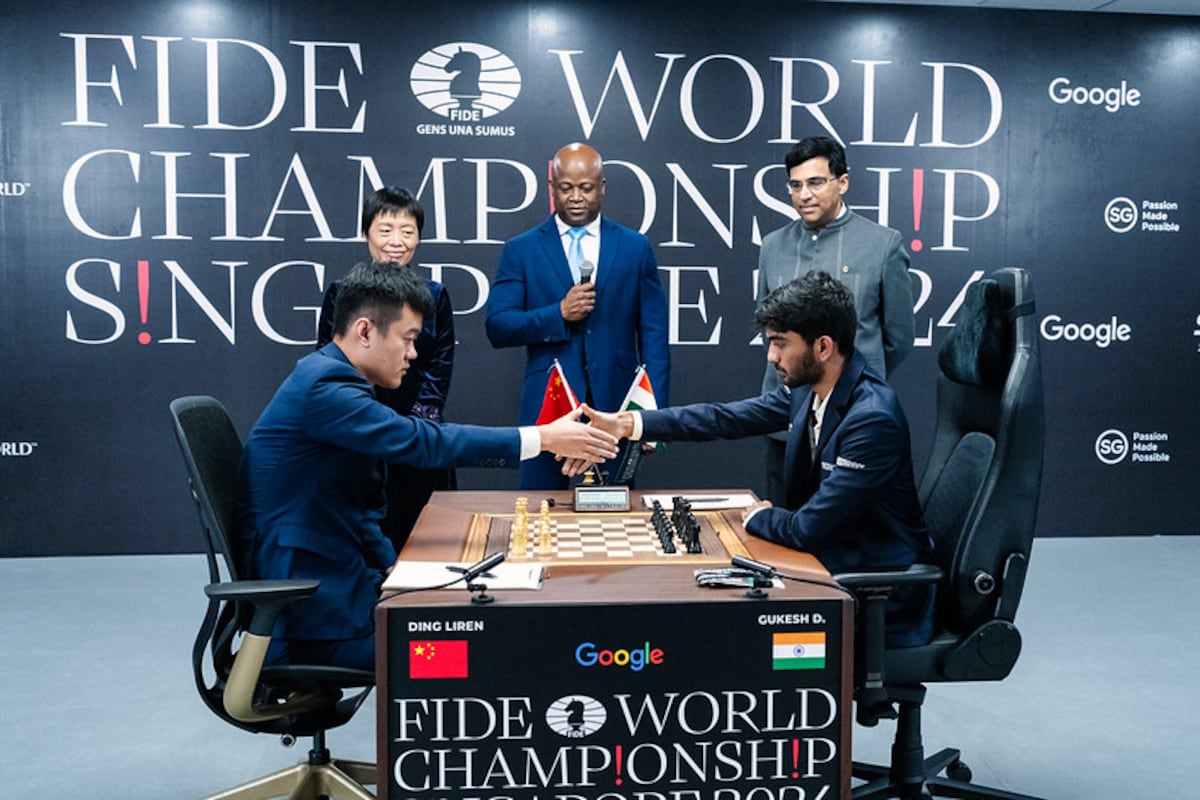Liren Ding still has a lot of confidence to regain, although last Monday a great weight was lifted from his shoulders by winning the first game of the World Cup after a year and a half of medical and sporting crisis. His rival, Dommaraju Gukesh, shows signs of psychological solidity and had no problem this Friday to draw the 4th with the black pieces. The 18-year-old Indian will lead the white team on Saturday in Singapore against the 32-year-old Chinese, with the score tied (2-2).
Sometimes kick-offs are much more than a formality. The guests in this case were the chess icons in the two most populated countries in the world. Xie Jun was the first Chinese world champion (1991), just fifteen years after chess was banned during the horror called Cultural Revolution,while the great leader Mao Zedong was dying. Thanks in large part to their successes, the top four on the women’s world list today are Chinese. Viswanathan Anand, five-time world champion, is the same for chess in India as Rafa Nadal is for tennis in Spain, but multiplied by many (India had 1,413 million in 2023; China, 1,399); Four of the top 17 in the ranking today are Indians.
After winning the first game and drawing in the second when he had a small lead, Ding lost the third because he took too much time in the opening to escape a death trap that Gukesh and his team had prepared in the laboratory. Consequently, the champion proposed the fourth like a scalded cat: despite having the initiative of the white pieces, his second move was very timid, giving up the initial advantage (similar to having the serve in tennis) in exchange for avoiding the poisonous Indian preparations.
Gukesh responded quite quickly, implying that the surprise did not bother him. Ding then took his time to look for a good plan. But he found it and, after his twelfth set, Xie Jun evaluated the position like this for Morning Express: “Ling is comfortable in this position, and it is easier to play it with white.”
However, Gukesh made it clear that he has already overcome the stage fright which he admits having suffered last Monday, when he lost the first round. His victory on Wednesday – his first after six games against Ding – erased any trace of an inferiority complex in the youngest challenger in history. Consequently, the Indian prodigy had no problem equaling this fourth game and forcing a tie that leaves the duel completely equal on the scoreboard, but perhaps not yet in the psychological balance, because Ding continues to show certain signs (he thinks a lot about some relatively easy) that he has not yet fully recovered his self-confidence after a year and a half of deep crisis, in his health and in his state of sporting form.
Xie Jun and Anand deserved a much more interesting fight in the game where they took the kick-off, which ended in a draw after more than three rather boring hours. But they know very well that in a duel that began with two victories in three rounds, it is normal for the fourth to be very calm.










